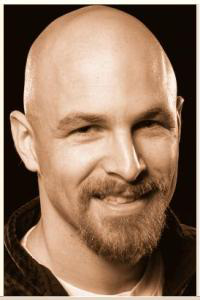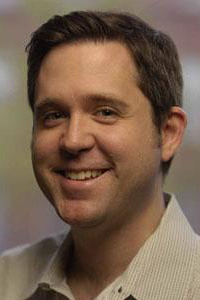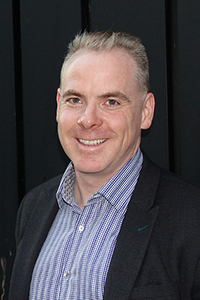Current and Future Urban Challenges:
The Role of Big Data and Technology
Projections show that urbanization, combined with the overall growth of the world’s population, could add another 2.5 billion people to urban populations by 2050. “Managing urban areas has become one of the most important development challenges of the 21st century. Our success or failure in building sustainable cities will be a major factor in the success of the post-2015 UN development agenda,” says John Wilmoth, Director of UN DESA’s Population Division. Exponential growth in urban density and cities brings numerous challenges and opportunities, both in the short and long term. Various types of data are being collected and analyzed today that may provide answers to the big questions faced by cities in the 21st century. One of the goals of this panel discussion is to educate attendees about current and future urban challenges, and how big data and technology is being used and can be used in the future to overcome them. This panel is comprised of distinguished faculty and people from outside the University with different areas of expertise.
Brian Finley
Principal Architect, Big Data Solutions - Lenovo Technical Sales
Brian Finley is a Principal Architect for Big Data Solutions, Lenovo Technical Computing. He has specialized in operating systems, system architecture, and system integration since 1990. Mr. Finley is an Open Group certified Distinguished IT Specialist and holds a number of other technical certifications, writes articles for industry publications, is the creator of SystemImager (popular Linux mass-deployment software), is an xCAT (cluster management software) developer, and has created and/or contributed to a number of other open source projects. With 25 years of IT experience across numerous industries, he has a diverse background covering a wide variety of technologies and roles. Mr. Finley lives in Dallas with his wife, four children, one small dog, and a toad.
Chris Berry
Associate professor in the University of Chicago Harris School of Public Policy
Christopher R. Berry, an associate professor in the Harris School, is director of the Center for Municipal Finance and faculty director of the Master of Science Program in Computational Analysis and Public Policy. His research interests include metropolitan governance, the politics of public finance, and intergovernmental fiscal relations. Berry is the author of Imperfect Union: Representation and Taxation in Multilevel Governments(Cambridge UP, 2010), winner of the Best Book Award in Urban Politics from the American Political Science Association, and many other scholarly publications. For access to Professor Berry’s writings, please visit his research web page.
Douglas Voigt
Director of Urban Planning and Design at Skidmore, Owings & Merrill LLP
Since joining SOM in 1995, Douglas Voigt has focused on complex urban plans and architectural projects. He is interested in the capacity of design to build community and connect people to one another. Voigt’s work is distinguished by a passionate appreciation for each project’s unique challenges and the need for a comprehensive and innovative response.
Voigt balances conceptual thinking with a realistic, hands-on approach. As a designer and planner, he works closely with city leaders, institutions, and developers across the globe. Although each project has its own story, a common focus on building long-term partnerships with clients and understanding their aspirations motivates his approach to design. Over the last two decades, he has been able to unite disparate stakeholders under a cohesive vision, transforming abstract ideas into physical realities.
Voigt is a strong advocate that every plan explore the social and natural systems within our larger urban ecology. He is committed to the research and synthesis of ideas that transcend best practices. This approach allows for the positioning of new ideas that holistically address the possibilities of the site, program, energy, water, waste, transportation, and air quality within the parameters of economic realities and urban design excellence, while scripting more sustainable models for high-performance infrastructure and livable communities. - See more at: http://www.som.com/about/leadership/douglas_voigt
Daniel X. O'Neil
Executive Director of the Smart Chicago Collaborative
Daniel X. O’Neil is the Executive Director of the Smart Chicago Collaborative, a civic organization devoted to making lives better in Chicago through technology. Smart Chicago was founded by the City of Chicago, the John D. and Catherine T. MacArthur Foundation, and the Chicago Community Trust and works to apply the transformative power of technology to solve problems for the people of Chicago.
Prior to Smart Chicago, O’Neil was a co-founder of and People Person for EveryBlock, a neighborhood news and discussion site serving 16 cities. He was responsible for uncovering new data sets through online research and working with local governments. In August 2009 EveryBlock was purchased by msnbc.com. After acquisition, O’Neil ran business development for EveryBlock, working on advertising, content partnerships, and integration with the core msnbc.com site. During this time period, O’Neil participated in the open data/ open government movement, advising governments and candidates on policy.
Prior to EveryBlock, O’Neil spent 10 years as an Internet strategist and project manager for Streams Online Media, one of the first Web design firms in Chicago. He continued this work at Dunn Solutions Group after their purchase of Streams in 2001, with a focus on technology requirements training and the development of Web-based tools for training, e-commerce, and content management. He also created a number of sites for municipalities, including the first Web site for the Chicago Inspector General, the person in charge of rooting out corruption in Chicago city government.
Since 2002 he’s run a number of independent Web projects, including CTA Alerts/ CTA Tweet and CityPayments.org. He’s developed dozens of Web sites for nonprofits, schools, and small businesses using easy-to-use and inexpensive tools such as weblogs, wikis, and social networking sites. In June of 2011 he was honored by the White House as a Champion of Change for Technology and Innovation.
O’Neil has a degree in English and anthropology from the University of Illinois at Chicago. He writes poetry books, has written for a number of Chicago news outlets, and has the inevitable weblog. See more at www.derivativeworks.com.




